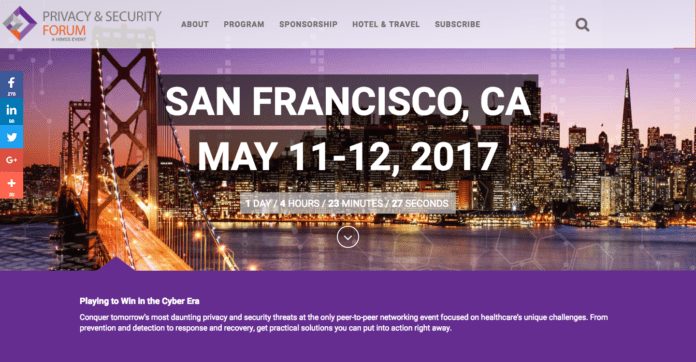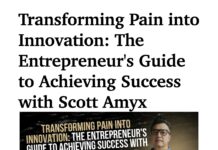Mark your calendars as San Francisco, California, is set to host the upcoming Healthcare Information and Management Systems Society (HIMSS) and Healthcare IT News Privacy & Security Forum on May 11-12, 2017. This two-day conference will see the top minds in the IT wing of healthcare discuss how the Internet of Things is a welcome addition to healthcare, but can leave some with a sour aftertaste.
The evolving IT landscape has made one thing blatantly clear: data is the new currency. Data is the new nuclear. Data is the new drug. It needs to be protected from the clutches of individuals hell-bent on wreaking havoc.
While hospitals and healthcare providers excel in proving top-notch care to their patients, it is generally observed that many of them lack when it comes to providing adequate security to the data of their patients, and this exact issue will be tackled by Malcolm Palmore – assistant special agent, FBI – at the forum.
The issue of information security at hospitals stems from the absence of standardized security frameworks. Similar to other industries, securing Personally Identifiable Information (PII) along with the health information of patients presents an unprecedented challenge for healthcare providers. This challenge calls for mitigating digital risks to avoid data breaches, a good start to which is HIPAA compliance, but there is a long way to go after that.
Palmore, along with other leading names in the industry, will address the forum and highlight the available means to neutralize the threats presented by the Internet of Things, ways to protect your identity against theft, and to recognize a phishing attack when you see one. Not to forget, the industry veterans will also take on ransomware and how to remain safe from them the Navy Seal way. The forum will also see two researchers from the University of California, Berkeley discussing the future of IT, healthcare and cybersecurity post emotional computing, machine learning, artificial intelligence, and bio-sensors.
Another key point of debate at the forum will be consumerism and why should healthcare providers include it in their risk management strategy. This is because the changing times have also witnessed a pole shift in consumerism. Gone are the days when people just used to rely on their employers for health insurance. The Affordable Care Act has changed the playing field and people are now looking for plans with high deductibles.
And since people are looking for the best possible bargain for their insurance, there is high probability that digital security of their data will have a huge impact on their decision. The healthcare providers that lack in this area might just suffer hefty revenue drops if they fail to address this issue.


















